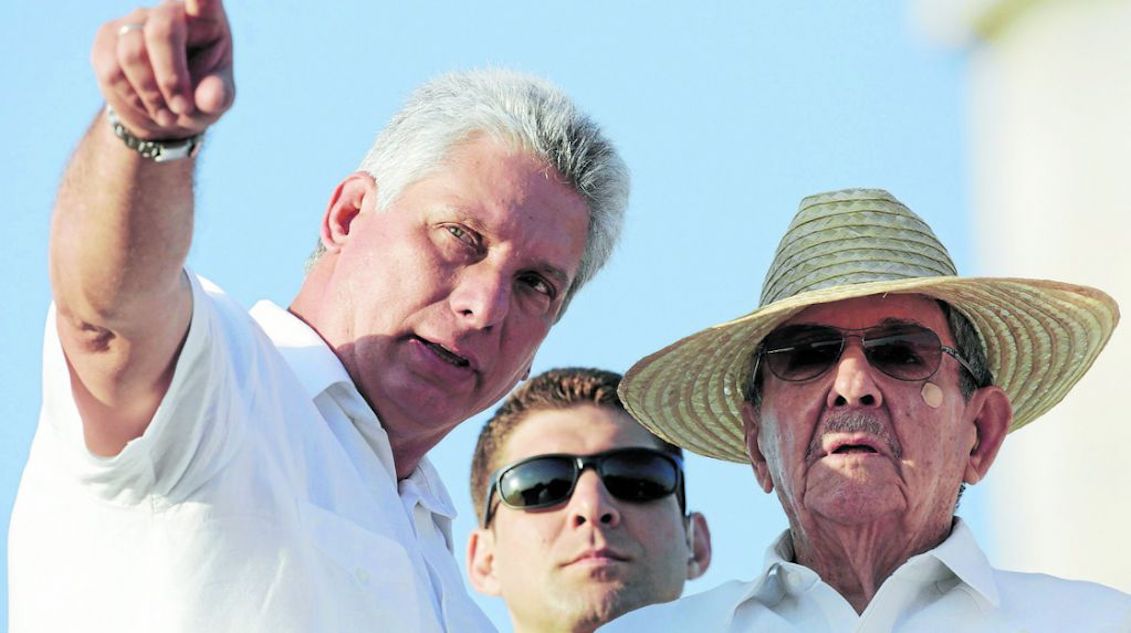
Cuba without Castro: Is a new country possible?
In ten days, the island could abandon the beards and green uniforms to enter a new historical and political period, is it actually possible?
After the death of Fidel Castro, the question that has been on the table has been the possibility of the survival of the island and the Revolution without its leader, despite the fact that since 2006 his brother Raúl has taken the reins of the country.
Many took refuge in the idea that Raúl Castro could maintain the political stability of the regime, until in December 2017 he announced that he would resign from the country's presidency in April of the following year, after "a new National Assembly took shape".
Once the parliamentary elections where over, the island awaits its first elections on April 19 after the death of Fidel, and the first time that someone outside his family will take power from the country since the triumph of the Revolution in 1959.
During the month of March, the BBC reported that the parliamentary elections have been the prelude to an "announced succession", in a political process where the Communist Party (CCP) is the only one authorized to participate.
And Raúl has already named his favorite: Miguel Díaz-Canel.
"The successor of the president, according to this system, is the first vice president of the Councils of State and Ministers. What was Raul Castro with Fidel and what has been Díaz-Canel in recent years," explained Cuban analyst Rafael Rojas in an article cited by the BBC.
In the same way, the director of the official Cuban magazine Temas, Rafael Hernández, explained to the media that "only the press outside of Cuba would think that the successor could be other than Díaz-Canel."
According to the newspaper La Tercera (in Spanish), this first "intergenerational transition" of the regime is neither random nor improvised. "In fact, April 19 is not a casual date, since that day is the 57th anniversary of the victory at the Bay of Pigs," explains the newspaper.
But after almost 60 years of rule, many wonder if this is a true transition.
According to USA Today, "experts disagree over how much power Diaz-Canel will truly hold and wonder whether Castro will continue to run the show as head of the Communist Party in Cuba."
Frank Mora, director of the Kimberly Green Latin American and Caribbean Center at Florida International University, suggests that perhaps Castro's move is to position a "younger leader to at least give the appearance that the regime is changing with the times."
RELATED CONTENT
For Mora, Cuba won’t be entirely out of Castro’s grip until he’s dead. "He’s still going to be there in the background, still wearing his four-star uniform," he said.
Díaz-Canel has been described as "a true believer in the Marxist-Leninist ideology that formed the basis of Fidel Castro's government," according to the media. "He supported the marginal changes implemented during the 12 years of Raúl Castro's rule, such as allowing Cubans to buy and sell property for the first time, work privately outside of the state-run economy and get slightly expanded access to computers, cellphones and the Internet".
But the situation that Diaz-Canel "will inherit" is not exactly the simplest.
According to the Colombian media Portafolio (in Spanish), "the Soviet-style economy of Cuba, hit by the hurricanes and affected by the reduction of aid from Venezuela, is in a deplorable state", adding to the reversion of the benefits obtained during the government of Barack Obama and the new positions of the Trump Administration before the island.
For Cubans, the outlook is less hopeful.
"I hope the new president is a young person, who understands the social changes that are happening in the rest of the world," Marta Deus, co-founder of a local company, told Portafolio.
As the media summarizes: "after six decades of struggle, there is a general sense of resignation, mixed with weak hopes for change as the so-called historic generation of old Cuban leaders steps aside."











LEAVE A COMMENT: